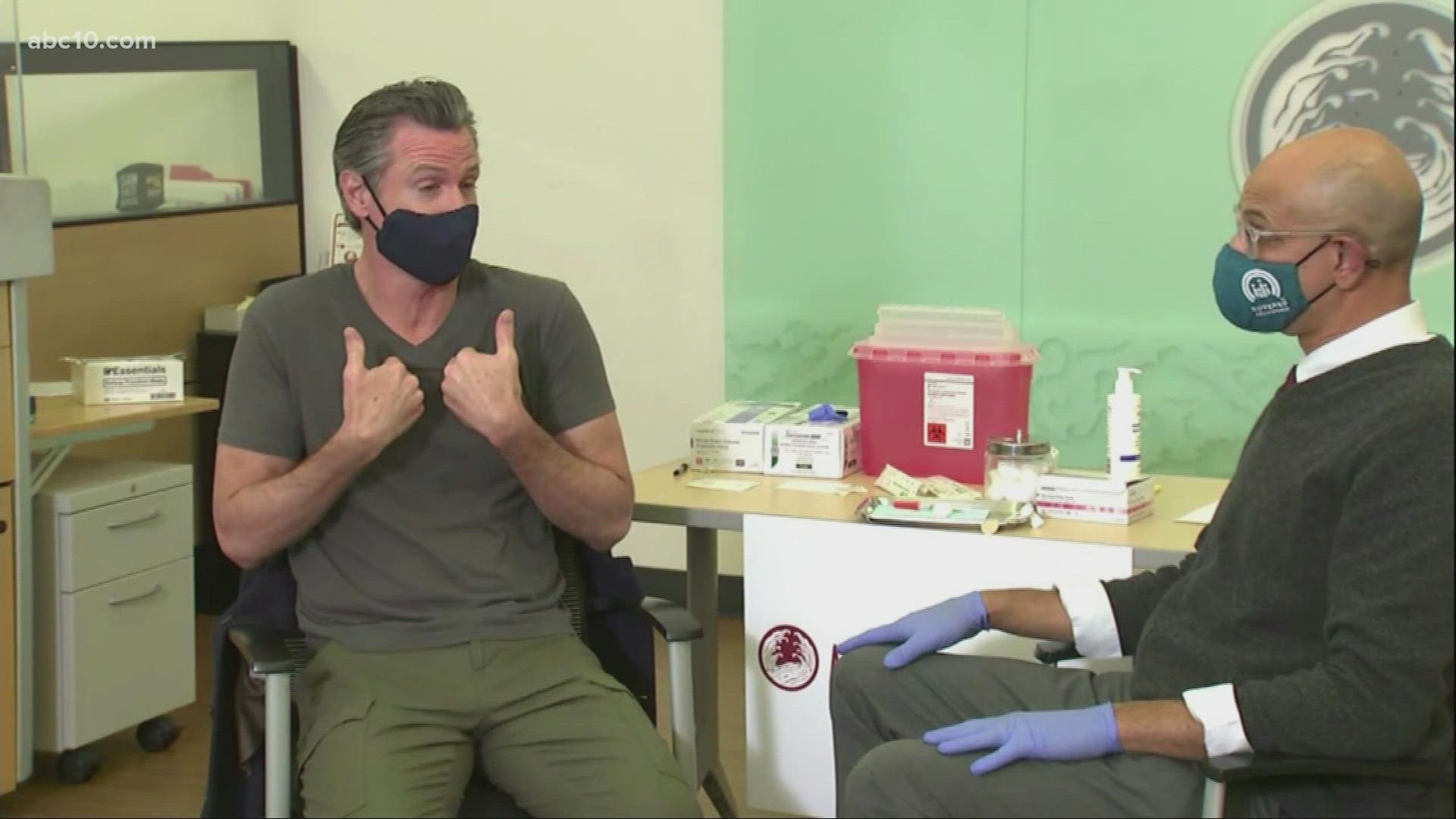SACRAMENTO, Calif. — Boosters are now approved for the Pfizer, Moderna, and Johnson & Johnson COVID-19 vaccines. The Associated Press reports Pfizer boosters began last month, and recently, the FDA cleared mixing and matching of booster shoots for eligible adults.
But who's eligible — and when — differs depending on which vaccine you got first.
ABC10 has received a handful of questions about booster shots, so we reached out to UC Davis Health for some answers and spoke with Dr. Dean Blumberg, professor and chief of Pediatric Infectious Diseases at UC Davis Children's Hospital.
Q: If you had a bad reaction to the second vaccine, are you more likely to have a reaction to the booster?
A: I'm not aware of that. And I've heard anecdotally that it goes both ways that some people who've had bad reactions to the second dose also can have bad side effects after the booster. And I've also heard people who've tolerated it well.
Q: What are the most common side effects of the COVID-19 booster shots?
A: They're very similar to what happens after the second dose, which is that you do tend to get pain at the injection site, usually just lasts a few days, and usually it's not severe. And then you can get systemic side effects such as fever, fatigue, headache, and again, that usually goes away after a day or two.
Q: Even after being fully vaccinated and getting the booster shot, would you recommend still wearing a mask?
A: Yeah, I'm still recommending wearing a mask, for now, we still have relatively high rates of transmission. And so this can result in breakthrough illnesses. So it's safest to wear masks while indoors with around other people. And I also recommend masking outdoors if it's a crowded area. So for example, when I go to the farmers market, which can be crowded, I wear a mask at that place.
Q: Do you retain COVID antibodies for the rest of your life?
A: Well, we just don't know that since COVID hasn't been around for that long. But if you look at similar viruses, so other coronaviruses that cause the common cold, those antibodies do stay around for years, but they don't protect forever, so you can get re-infected with the same strain every year or two with the common coronaviruses that cause colds, and with COVID you can get re-infected.
Q: Can you no longer get COVID once you have had COVID?
A: You can get reinfection. It's rare within 90 days of initial infection, but after that, it may occur. That's why it's recommended to get vaccinated even for people who've had a COVID infection. Getting vaccinated reduces the risk of reinfection by more than 50%
Q: How long does the vaccine antibodies for COVID last in a person?
A: We just don't know, we don't have an antibody correlate of immunity. So we can't follow that to see if it falls below a certain level, we need the actual studies that show that people are getting sick after a period of time. Right now, it appears that people who've been vaccinated for most people, they end up being protected against serious disease for a long time. In terms of the breakthrough infections that result in mild disease, for most people, that does seem to wear off after about six months. Those who are at risk for more severe disease after about six months include those over 65 or those with serious underlying health conditions.
Q: If you are fully vaccinated but got COVID, when can you get a booster?
You can get a booster as soon as you are feeling better and no longer contagious, generally at least 10 days from the onset of symptoms. Reinfection is rare within 90 days of infection, so any time within that 90 day window is good
COVID-19 vaccination locations
If you live outside one of the above counties, click this link to find your location.
Resources:
- San Joaquin County Help: A Resource Guide for Struggling Families and Individuals
- Yolo County Help: A Resource Guide for Struggling Families and Individuals
- Stanislaus County Help: A Resource Guide for Struggling Families and Individuals
- Sacramento County Help: A Resource Guide for Struggling Families and Individuals
Have questions about COVID-19 booster shots? Text ABC10 to (916) 321-3310. We will work to provide answers to the questions to the best of our ability.
ABC10: Watch, Download, Read
Watch more from ABC10:























